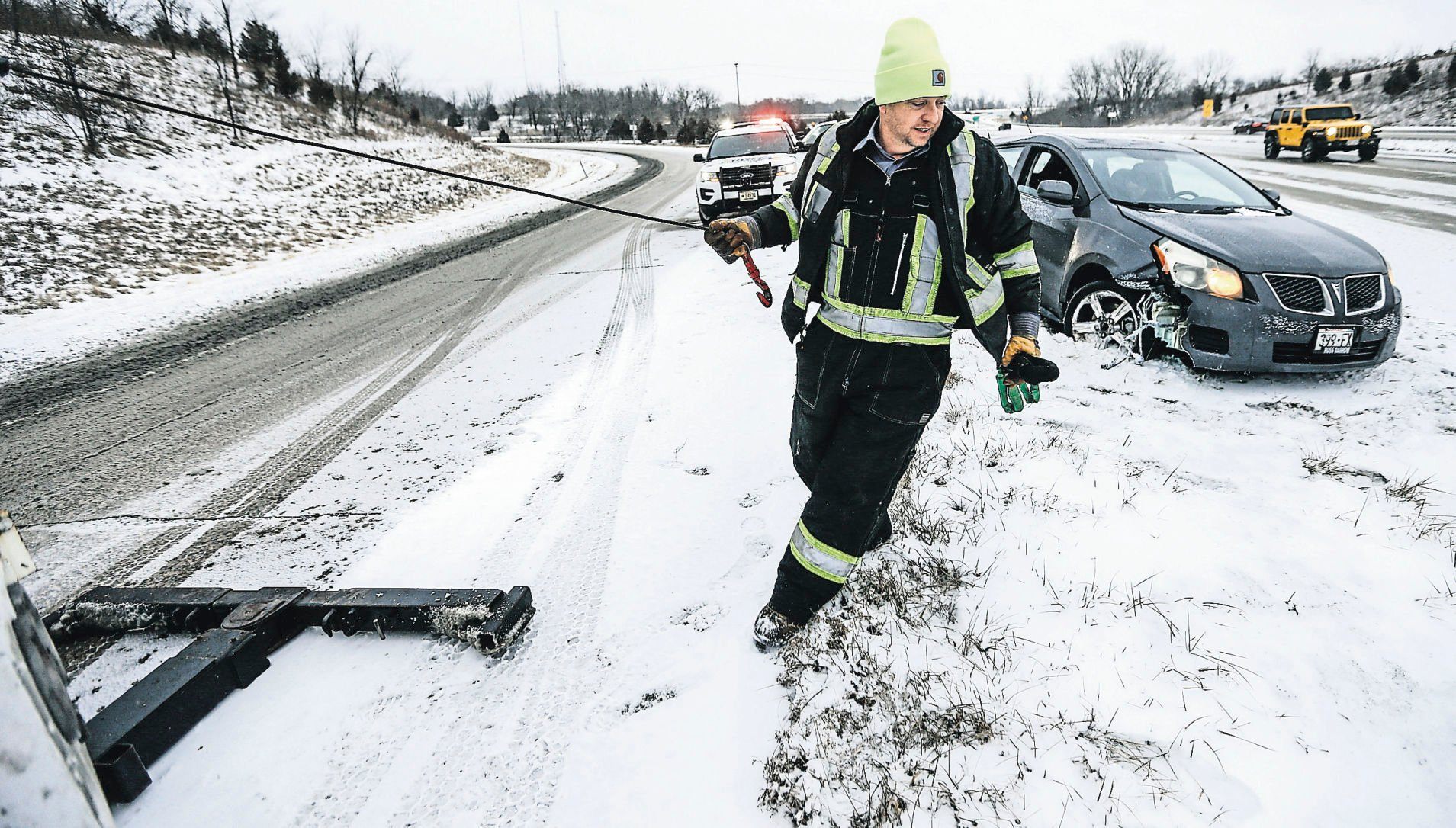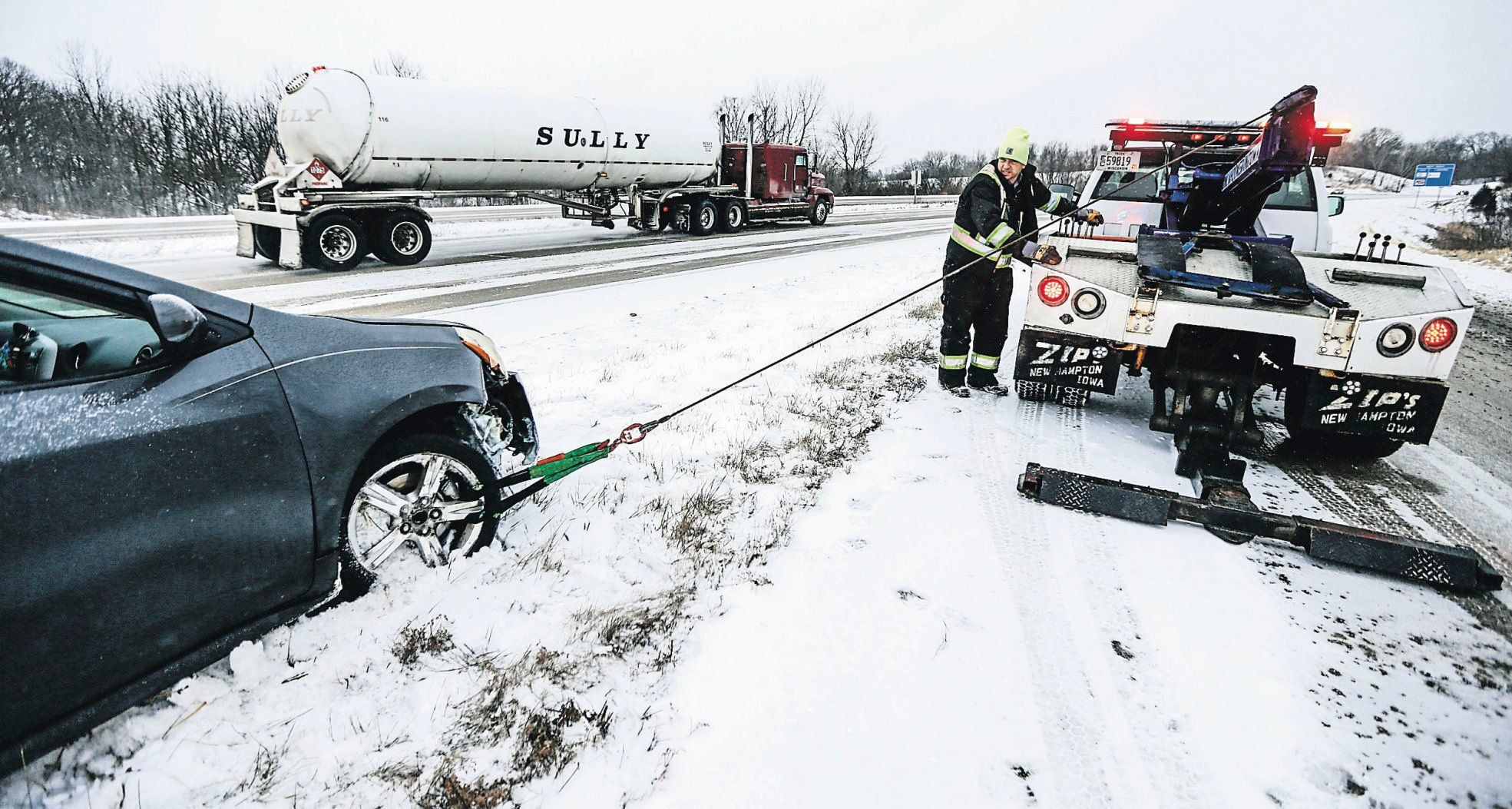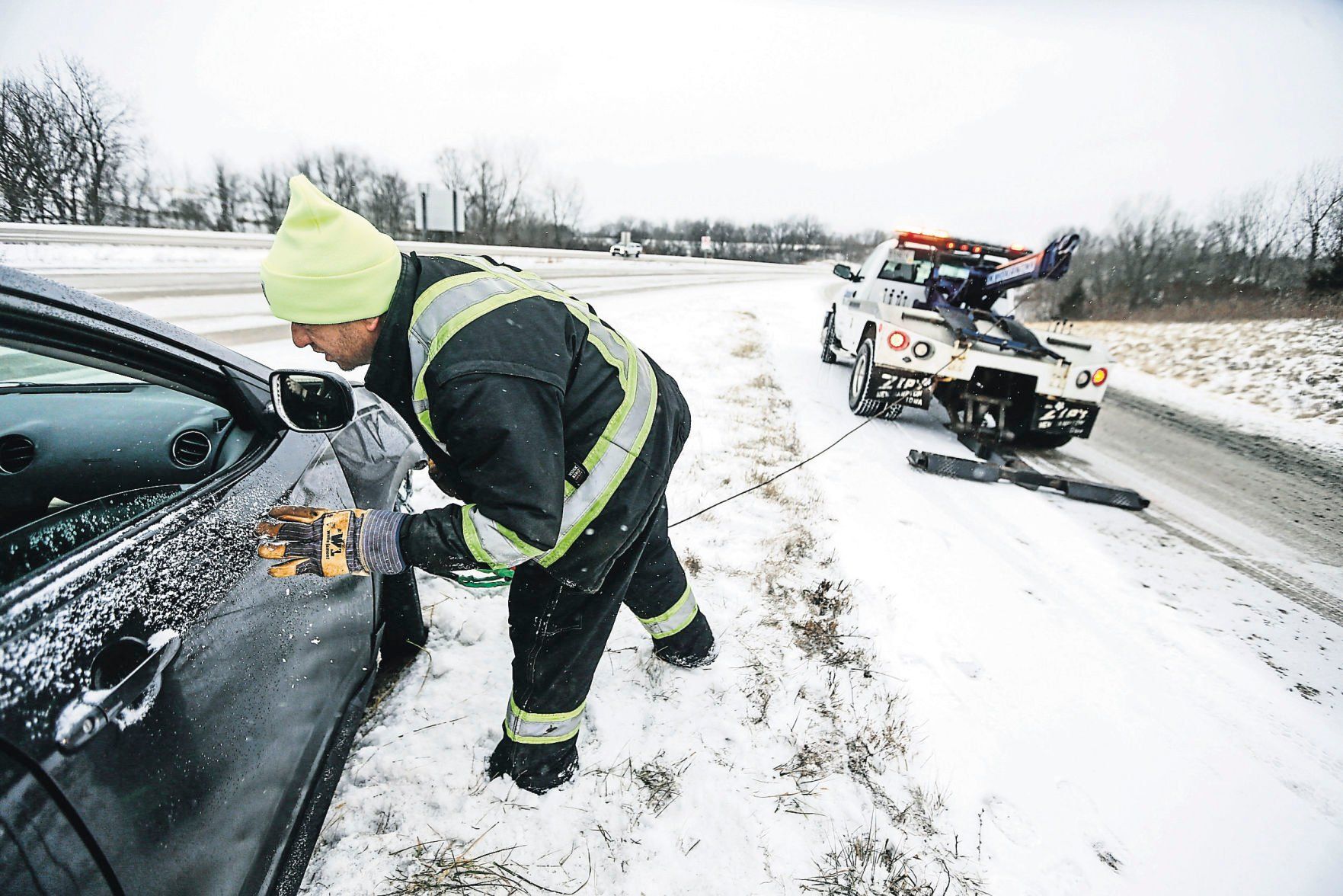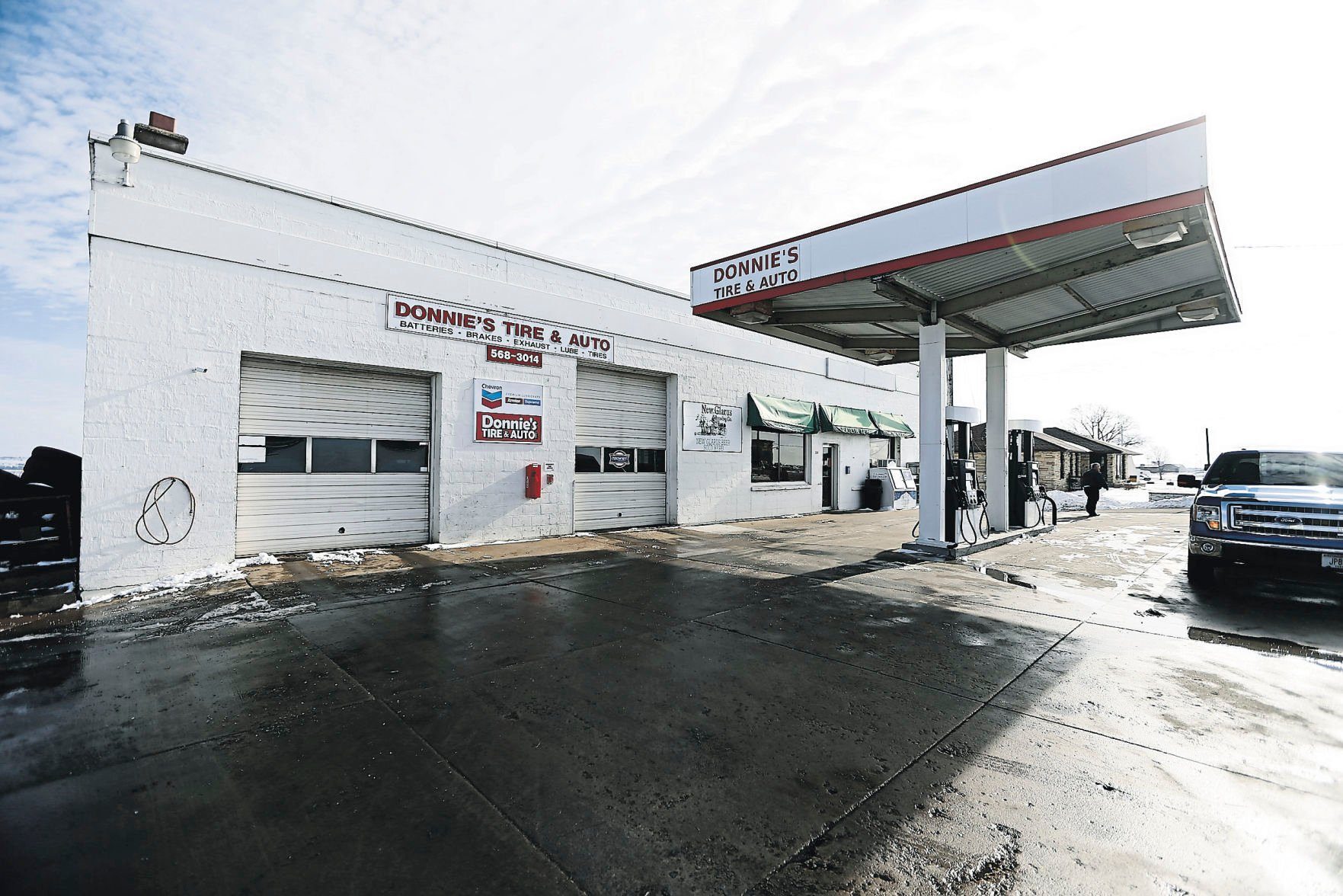Kevin Barth is accustomed to receiving phone calls all night long during a major winter storm.
“Sometimes, you will pull the (tow truck) into the garage and sleep in it,” said Barth, whose family has owned Donnie’s Tire and Auto in Dickeyville, Wis., since 1994. “If we have snow every other day, then, yeah, we will be busier in winter.”
Winter storms can dramatically increase calls for service for area tow-truck operators.
“Winter is busier than normal,” said Jake Schroeder, operations manager for a group of towing operations in eastern Iowa, including McCann’s Service and Wenzel Towing in Dubuque and Tegeler Body & Frame, Wrecker & Crane in Dyersville, Iowa.
Schroeder said his towing operations respond to a wide range of calls for service during the winter months.
“It’s everything from winch-outs (of stuck vehicles) to doing jump starts on cold vehicles, or responding to people who are locked out because they get in a hurry and their keys are locked in their car,” he said.
Winter conditions also can pose challenges to the tow-truck operators themselves.
“We’re putting ourselves in harm’s way,” said Ben Richard, owner of Guy’s Truck & Tractor, which has locations in Galena, Ill., and Kieler, Wis.
Schroeder said winter conditions can complicate responding to calls for service.
“We face the same hazards as everybody else when there are roads that haven’t been plowed,” he said. “(Tow truck) drivers navigate the roads and use their judgment — you just be as safe as you can. It’s cold out (in winter), and (tow truck drivers) work long hours.”
Richard said if county plows are pulled from the roads in the evening of major winter storms, “it gets to be dangerous for us.”
“We have a plow truck we send out in front of a tow truck in major storms,” he said. “We carry tire chains on all our tow trucks, and if it’s a bad storm, we put chains on our trucks before we even go out.”
Barth said the extent of winter weather is among the factors determining the volume of service calls handled by his towing service.
“The amount of snow we get and how quickly the road department gets out there determines how busy we’re going to be,” he said. “We have two tow trucks. We’re just a family-run business, so we don’t have a whole bunch to put out there.”
The amount of warning motorists receive before the arrival of winter weather also can determine call volume.
“This year has been more of a struggle because the first few storms were not quite as expected and they caught people by surprise,” Richard said.
Richard referenced a few nights of icy road conditions this year that occurred when fair travel had been expected.
“If people know there is a big storm coming, they are more prepared and people often make other plans (to avoid being on the road),” he said.
Barth said when forecasters issue a winter storm warning in advance, “it gets people’s attention,” as opposed to storms that produce relatively minor accumulations.
“We seem to be busier with 1 or 2 inches of snow than the major (storms) — except in blizzard conditions,” he said.
Barth said that calls for slide-offs or crashes generally are split 50-50 during a winter storm.
“It all depends on the amount of snow you get and if it’s snow or ice,” he said. “Platteville has a lot of college drivers, so it tends to be a bit busier up that way with slide-offs compared to crashes. One of the main things, especially being next to a college town, is you have a lot of these college kids who are broken down or in a ditch, and their parents are 200 to 300 miles away. We can give them peace of mind. Helping people is the main reason you do it.”
Barth said most winter-related calls aren’t due to snow, but cold temperatures.
“Yesterday I had seven (cars) that wouldn’t start, and today I have a list of six,” he said recently. “If the (car) batteries are five years or older, the cold will definitely put a test to them.”
Barth will prioritize multiple calls by severity during the busiest times.
“The first thing that I will do when we get calls is find out if they are OK, if their car is still running and if they can stay warm,” he said. “If there is (an incident causing) a road blockage, you go to that first.”
Schroeder said that his firm’s goal is to “get to the customer as fast and efficiently as we can, whether their car is stuck or broken down or if they need a jump start.”
“If there is an accident blocking traffic, we get there right away,” he said.
Dubuque, Grant and Jo Daviess counties rely on a rotation system to dispatch towing operators to calls when the driver has no preference for a certain company.
Barth said on the busiest spells of calls during winter weather, multiple towing operators can attend to vehicles within the same general area.
“We tend to work together pretty good,” Barth said of his firm and other local companies.
Schroeder said his advice to stranded motorists waiting for a tow truck to arrive is to be patient and remain in the vehicle.
“It’s the safest place to be,” he said.
Richard advises stranded motorists to notify authorities.
“If they are on the highway, they should get a hold of the sheriff’s office and let them know,” he said. “There could be property damage or damage to the vehicle (the driver) doesn’t know about, so the sheriff’s office can file a report.”
Richard said stranded motorists also should pack a blanket on trips during the winter.
“You might be sitting there a couple of hours,” he said.





